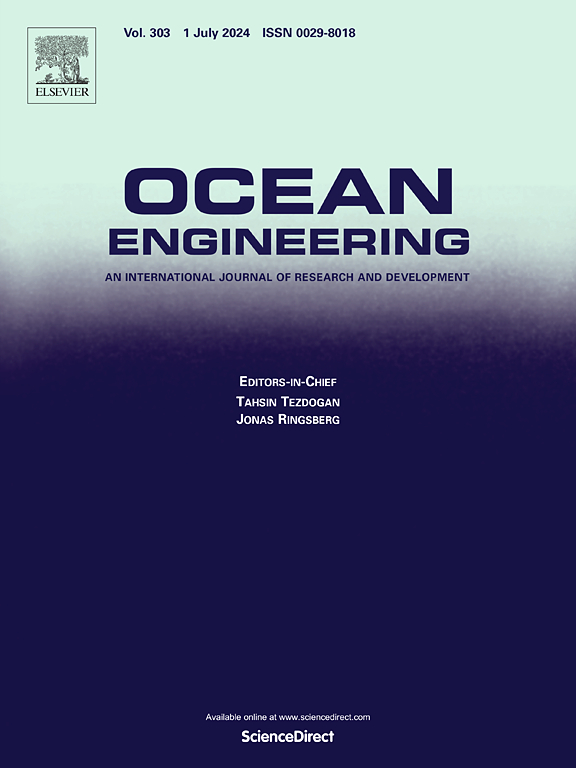基于方向性和自适应遗忘因子的递归最小二乘无人水面舰艇机动动力识别与运动预测算法
IF 5.5
2区 工程技术
Q1 ENGINEERING, CIVIL
引用次数: 0
摘要
近年来,无人水面舰艇(USV)在商业和科研领域的应用越来越广泛。建立精确的机动运动数学模型并进行有效的参数辨识是实现无人潜航器智能控制与辅助决策的前提。为了克服传统递推最小二乘法(FFRLS)在处理非连续激励和动态变化环境中的局限性,提出了两种改进的递推最小二乘法:定向遗忘递推最小二乘法(DFFRLS)和自适应遗忘递推最小二乘法(AFFRLS)。本文通过验证的CFD模拟车削试验和z型机动性试验建立了训练数据集。采用DFFRLS和AFFRLS算法对模型参数进行识别,并与传统的FFRLS算法进行比较。结果表明,通过方向分解,DFFRLS在处理随机噪声、传感器故障、数据突变等异常数据时具有较高的识别精度和鲁棒性。然而,AFFRLS通过自适应地适应遗忘因子,使得在数据更新过程中,特别是在参数快速变化的情况下,能够更加准确地进行数据更新。本文的研究结果表明,DFFRLS和AFFRLS算法在usv参数辨识方面具有显著优势,特别是在特定的复杂动态环境下,可以有效提高机动模型的精度和性能。本文章由计算机程序翻译,如有差异,请以英文原文为准。
Directional and adaptive forgetting factor based recursive least square algorithms for maneuvering dynamic identification and motion prediction of unmanned surface vessel
In recent years, Unmanned Surface Vessel (USV) has been increasingly widely used in commercial and scientific research fields. The prerequisite of realizing intelligent control and auxiliary decision of USV is to establish accurate mathematical model of maneuvering motion and carry out effective parameter identification. In this paper, to overcome the limitations of traditional recursive least squares (FFRLS) in dealing with non-continuous excitation and dynamic change environment, two improved recursive least squares algorithms: directional forgetting recursive least squares algorithm (DFFRLS) and adaptive forgetting recursive least squares algorithm (AFFRLS) are proposed.
In this paper, the training datasets are established by validated CFD simulated turning test and Z-shaped maneuverability test. The parameters of the model are identified by DFFRLS and AFFRLS algorithm, and compared with the traditional FFRLS algorithm. The results show that DFFRLS has higher identification accuracy and robustness through directional decomposition when dealing with abnormal data such as random noise, sensor fault and data mutation. However, the AFFRLS, by adapting the forgetting factor adaptively, makes it possible to be more accurate in the process of data updating, especially when the parameters change rapidly. The research results of this paper show that DFFRLS and AFFRLS algorithms have significant advantages in parameter identification of USVs, especially in specific complex and dynamic environments, which can effectively improve the accuracy and performance of the maneuvering model.
求助全文
通过发布文献求助,成功后即可免费获取论文全文。
去求助
来源期刊

Ocean Engineering
工程技术-工程:大洋
CiteScore
7.30
自引率
34.00%
发文量
2379
审稿时长
8.1 months
期刊介绍:
Ocean Engineering provides a medium for the publication of original research and development work in the field of ocean engineering. Ocean Engineering seeks papers in the following topics.
 求助内容:
求助内容: 应助结果提醒方式:
应助结果提醒方式:


